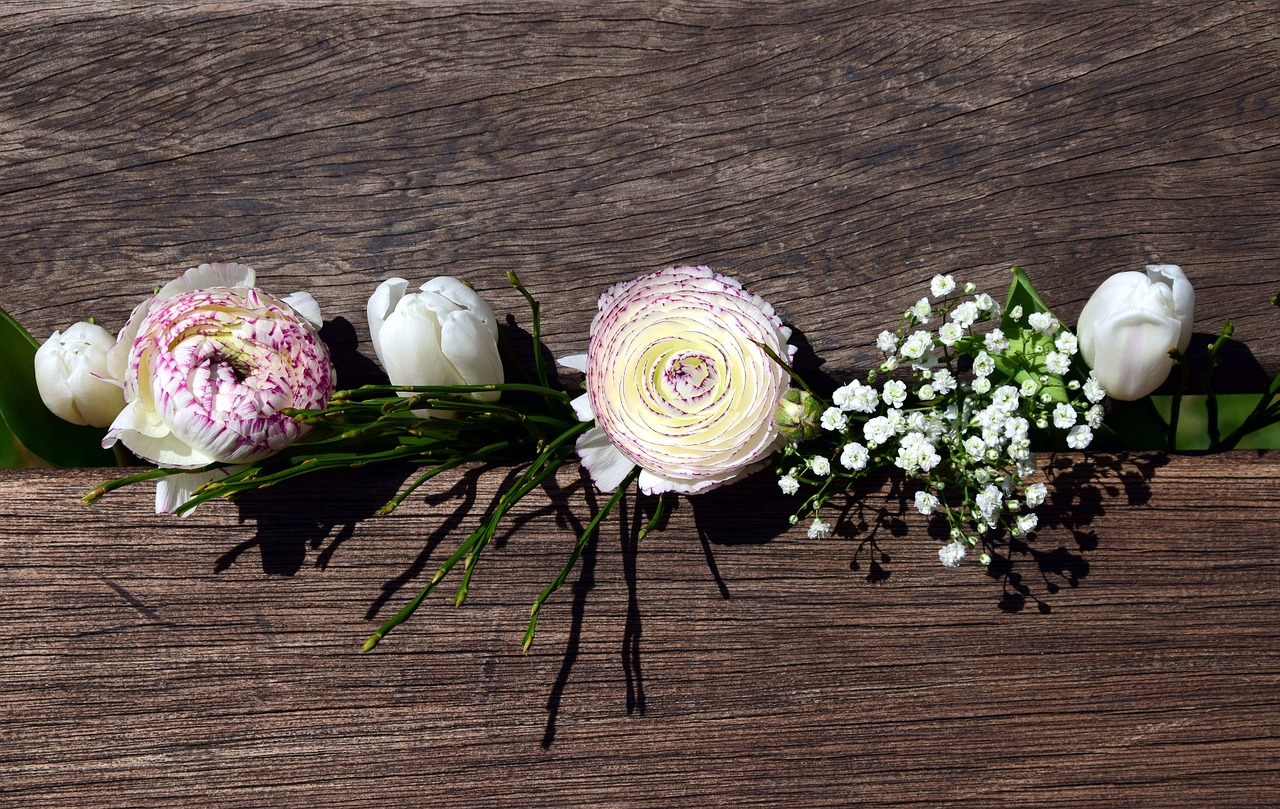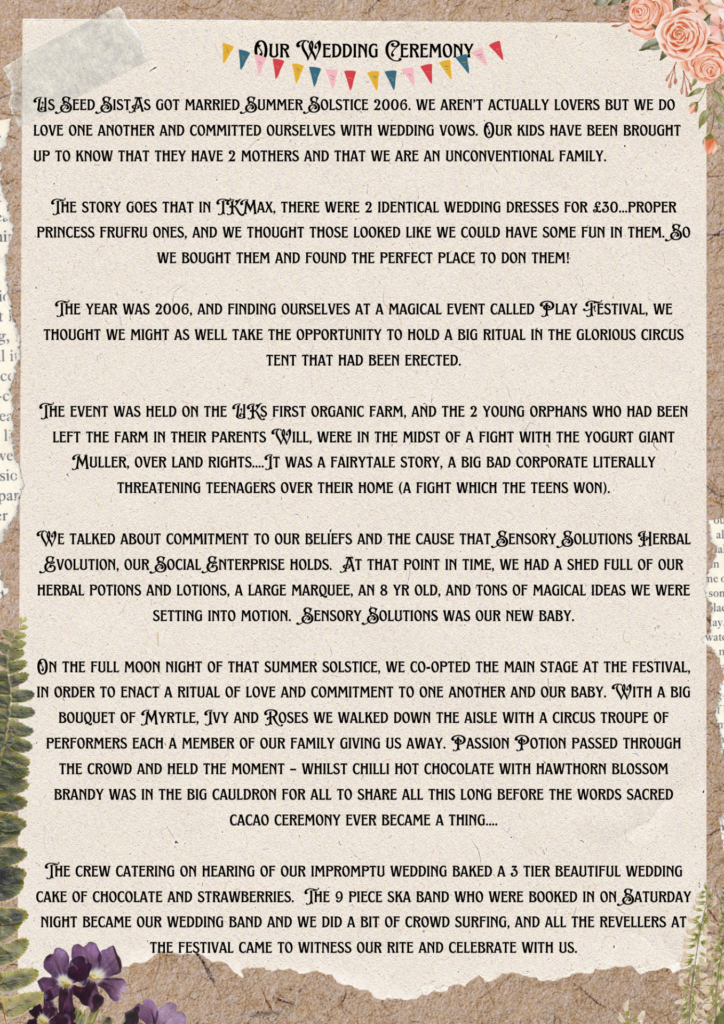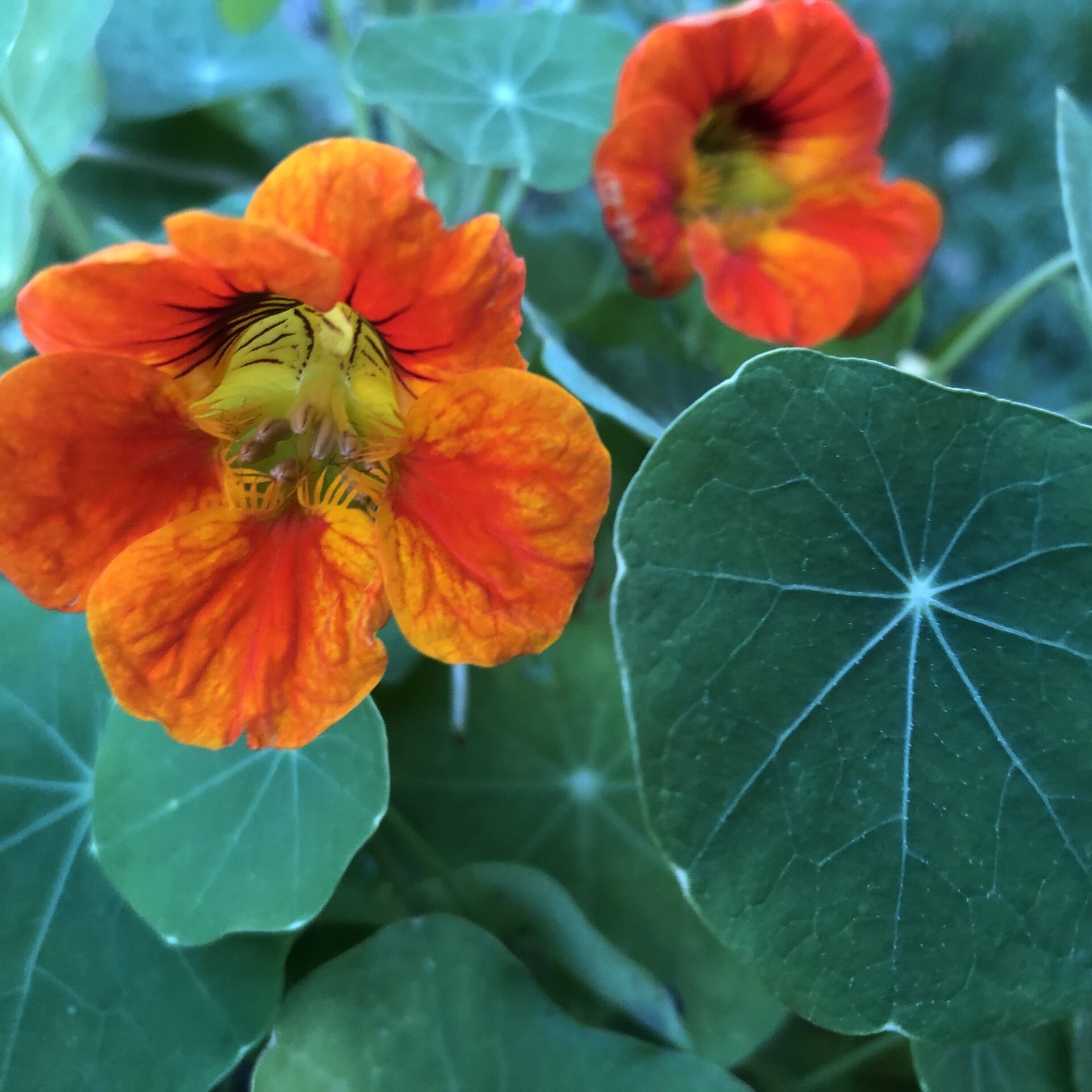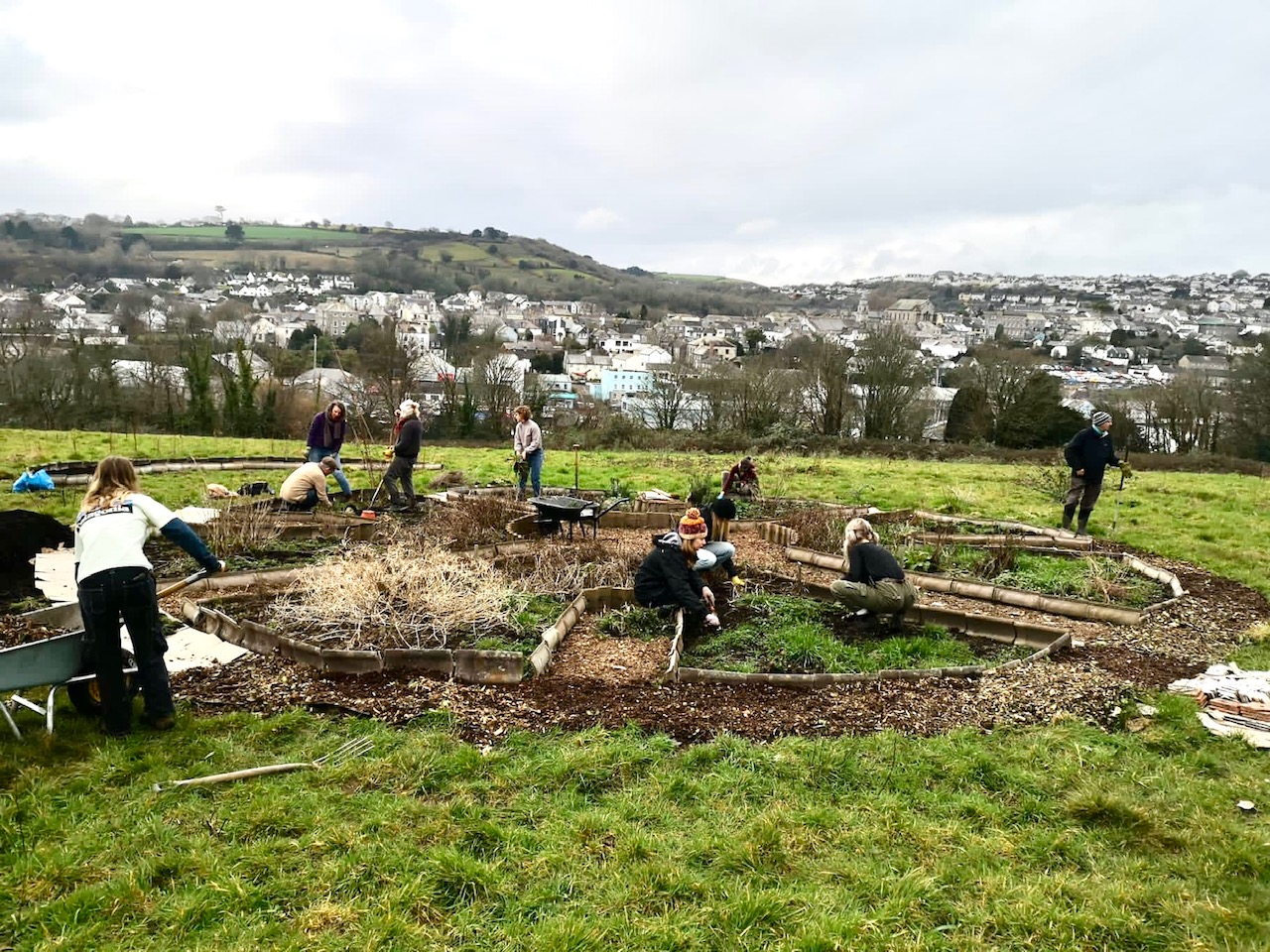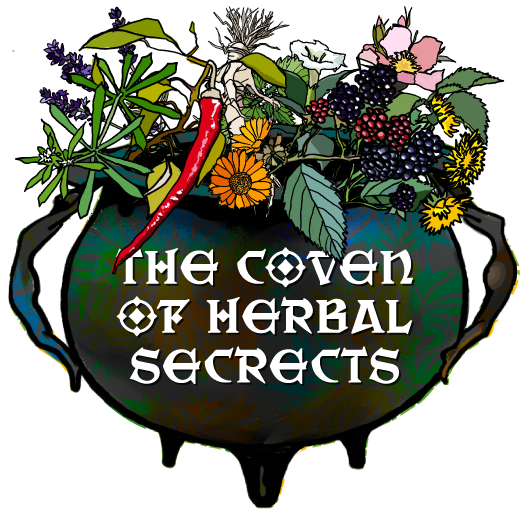Weddings are more than a celebration of love, they’re also a union of traditions and symbolism that span across cultures, generations and lands. One such age-old tradition is the use of plants, flowers and herbs in weddings and handfasting rituals. These fragrant and meaningful botanicals add a touch of natural beauty and rich symbolism to a marital journey. Plus, they bring an extra touch of personalisation and ancient wisdom to a special day.
Herbs have been valued for their symbolic meanings, aromatic qualities, and magical properties. Playing an integral role in matrimonial ceremonies throughout the ages, specific herbs weaved into a wedding bouquet, garland or placed at altars add good luck, protection and symbolic magic blessings to a commitment ceremony.
Historic Symbolism of Herbs in Weddings
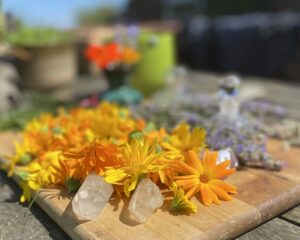 Whether for bridal couples or in bridal chambers, for centuries, herbs hold a sacred meaning in the language of love. The global and historical significance of herbs represents a universal thread that weaves through diverse cultures and epochs. Herbs, esteemed for their symbolic depth, aromatic allure, and perceived mystical properties, have played a pivotal role in wedding ceremonies across continents and centuries.
Whether for bridal couples or in bridal chambers, for centuries, herbs hold a sacred meaning in the language of love. The global and historical significance of herbs represents a universal thread that weaves through diverse cultures and epochs. Herbs, esteemed for their symbolic depth, aromatic allure, and perceived mystical properties, have played a pivotal role in wedding ceremonies across continents and centuries.
Believed to be aphrodisiac, mint and marigolds were woven into the hair, bridal garlands and wreaths of the Ancient Athenians. They also carried sprigs of marjoram and wheat to symbolise fertility. Roman brides also wore wheat for fertility, myrtle for a long life and for the groom’s virility, rosemary was the chosen herb.
During the Middle Ages, European brides chose more pungent herbs, such as chives and garlic, to ward off any jealous spirits who might want to ruin a couple’s marital happiness. For Victorian brides, choosing herbs and flowers that revealed their hopes and emotions was important to them. So, roses represented their love for each other, marjoram for joy, lavender for devotion and pansies for happy thoughts. The Victorian language of flowers, also known as floriography, meant each flower was assigned specific meanings, allowing individuals to convey sentiments through floral arrangements and bouquets.
3 Herbs in Wedding Rites
Each herb carries its own message, allowing couples to infuse their ceremony with personal and cultural significance to create herbal arrangements for a ceremony, handfasting or vow renewals.
Symbolism of Ivy in Weddings
Ivy is a symbol of eternal love and fidelity, making it a perfect addition to wedding ceremonies. The climber’s evergreen nature represents the unbreakable bond between two people and their enduring commitment to one another. The vines can grow and endure for many years, representing the idea of love that is strong, constant, and unbreakable. With lush, trailing vines and timeless appeal, ivy brings a touch of natural elegance and enduring love to weddings. 
Just as ivy clings and intertwines, symbolising unity and strength, couples choose this vine as a testament to their journey of growing and flourishing together. Ivy’s climbing nature also represents the idea of two lives becoming closer connected through friendship, not only romantic love. Ivy’s dense foliage and climbing habit have also been seen as a symbol of protection and shelter. Signifying the idea that the marriage will provide a safe and loving environment in which both partners can thrive and grow.
Beyond all this symbolism, ivy is also appreciated for having lush greenery and natural beauty. This enhances the overall aesthetic of wedding bouquets, centrepieces, and decorations.
Symbolism of Roses in Weddings
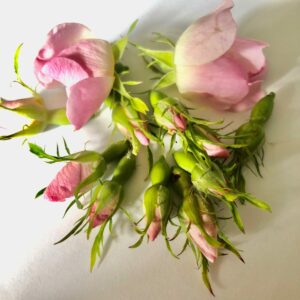 Throughout history, roses have been revered for their beauty, fragrance, and symbolism of love and romance, making them one of the most popular and versatile flowers for weddings. The most well-known symbolism of roses in weddings is love, but the numerous meanings of rose relate to the different varieties of roses: red for love/passion; white for innocence/purity; pink for happiness/admiration and yellow for friendship/joy.
Throughout history, roses have been revered for their beauty, fragrance, and symbolism of love and romance, making them one of the most popular and versatile flowers for weddings. The most well-known symbolism of roses in weddings is love, but the numerous meanings of rose relate to the different varieties of roses: red for love/passion; white for innocence/purity; pink for happiness/admiration and yellow for friendship/joy.
The rose was revered in ancient Egypt and was generally associated with the goddess Isis, symbolising love, femininity, and beauty. In ancient Greece and Rome, roses were associated with love and beauty, thanks in part to their connection to Aphrodite (Venus in Roman mythology), the goddess of love.
The tradition of throwing rose petals at weddings has its roots in ancient Rome. In Roman mythology, the rose was associated with Venus, the goddess of love and beauty. Thus by showering the newlyweds with rose petals, the guests are invoking the blessings of Venus on the couple’s marriage. Throughout time, when guests shower the couple with rose petals, it is a gesture of bestowing blessings, good wishes, and a prosperous life together.
Symbolism of Myrtle in Weddings
The myrtle plant has a long history of symbolism in weddings and is often associated with love, fidelity, and marital happiness. One of the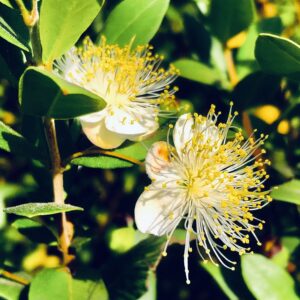 primary symbolic meanings of myrtle in weddings is marital fidelity. The evergreen nature of the myrtle plant, with beautiful shiny aromatic green leaves and firework bursts of fragrant white flowers, represents the enduring love and faithfulness that a couple pledges to each other in marriage so it’s often seen as a promise of long-lasting love and a happy marriage. Myrtle is also a symbol of chastity and innocence from the white colour Myrtle flowers and green leaves.
primary symbolic meanings of myrtle in weddings is marital fidelity. The evergreen nature of the myrtle plant, with beautiful shiny aromatic green leaves and firework bursts of fragrant white flowers, represents the enduring love and faithfulness that a couple pledges to each other in marriage so it’s often seen as a promise of long-lasting love and a happy marriage. Myrtle is also a symbol of chastity and innocence from the white colour Myrtle flowers and green leaves.
Roman wedding rituals always included the myrtle, a tradition that originated in ancient Greece mythology, where myrtle was associated with Aphrodite, the goddess of love and beauty. The plant was considered sacred to her and symbolised love and fertility. The Greeks adapted the root for the word from ancient Semitic sources which shared the same root as myrrh, the tree resin used for which is often burnt during rituals for purification.
In ancient Rome, myrtle was also associated with Venus, the Roman equivalent of Aphrodite, and was used in and within their wedding ceremonies, myrtle was seen as a symbol of love and purity. In Roman weddings, the bride would wear a wreath or crown made of myrtle leaves. This myrtle crown, known as a “myrtle wreath,” was a symbol of love and happiness and was considered a token of good fortune for the couple’s future life together. Queen Victoria played a significant role in popularising the use of myrtle in weddings during her own wedding in 1840, when she included myrtle in her bridal bouquet.
Our Grandmother and Queen Victoria’s Bush
Our grandmother Else was a witch with green fingers. Her garden was packed full of wondrous colour and useful plants; she cultivated roses, spoke to every flower and when she made cuttings called them her babies. She was a keen socialist and volunteered in The Royal Free Hospital for decades. After 30 years of service to the hospital, she and other volunteers were invited to Buckingham Palace for tea. Whilst there, they were taken on a tour of the gardens and Else pinched the tops of the myrtle bush that had grown from Queen Victoria’s wedding bouquet. Planting this in her own garden the bush grew beautifully nestled between an apple tree and a yellow rose. Years later, we took a cutting and now have the granddaughter myrtle in our own south facing garden. Berries and leaves from this bush go into our ImmuniT blend.
Don’t stop reading yet…!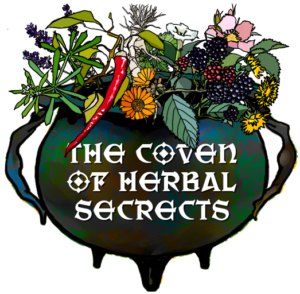
If you want to know the more about Herbs in Rituals, why not join our Coven? You’ll soon have access to our best resources while increasing your confidence and knowledge about the magic of herbs and master the art of herbal remedy creation, spells and rites, plus step by step guides to getting to know your plants better.
Herbs in Rituals will cover the topics above more in-depth, plus:
- Origins of the Wedding Bouquet, Corsages and the Boutonnière
- Historic Symbolism of Herbs in Weddings
- Making Rose Confetti
- Symbolism of Herbs and Flowers in Funeral Rites
- And much MORE!
Plants are calling YOU

